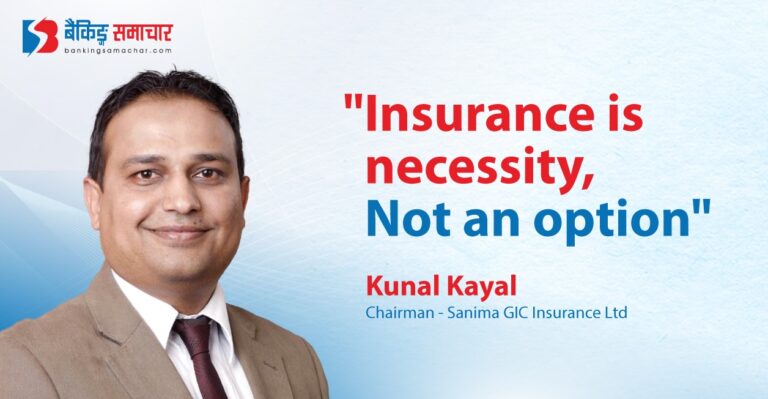The first desire of any insured individual is straightforward: “The money I invest in insurance should return double in some time.” This is the shared sentiment among ordinary insured individuals. For non-life insurance, policyholders expect full compensation for any loss incurred to their insured property. This principle aligns with the fundamental essence of insurance.
However, common grievances arise when insured individuals do not receive compensation equivalent to their losses. Such dissatisfaction is often attributed to a lack of clarity and communication between insurers and insured individuals. Insurance agents, who should serve as a bridge between policyholders and insurance companies, often fail to adequately inform customers about premium payments and claim amounts. This shortcoming erodes trust in the insurance system.
Digital Transformation: A Work in Progress
Nepal’s insurance regulatory body, the Insurance Authority, has been emphasizing digitalization. While progress is being made, the sector still lags behind in fully transitioning to digital operations. If claim settlements were entirely digitalized, insurance accessibility could significantly improve.
However, a lack of awareness about insurance policies is a root cause of dissatisfaction. Customers often fail to read the terms of their policies, leading to unrealistic expectations. For example, individuals opt for low-premium policies that may not cover the full extent of their assets, resulting in partial compensation during claims.
The Government’s Role in the Distrust
The primary reason behind the weakened trust in insurance lies in unpaid claims for COVID-19 and agricultural insurance policies. Despite government assurances of compensation, billions in claims remain unsettled. During the fiscal year 2077/78, the government promised a 50% subsidy on COVID-19 insurance but failed to deliver the allocated funds. As a result, policyholders are still awaiting payouts, totaling over NPR 11 billion.
Similarly, claims under agricultural and health insurance schemes remain unpaid. Small-scale farmers and hospitals offering health insurance services are among the most affected. This failure has deepened the mistrust towards insurance companies, as they are unable to fulfill claims without government support.
Insurance: A Necessity, Not an Option
Nepal’s geographical and political landscape makes it highly susceptible to risks such as floods, landslides, and earthquakes. In such a context, mandatory insurance for physical infrastructure and projects could mitigate losses and reduce the government’s financial burden.
Though insurance companies in Nepal have strengthened following mergers and increased capital requirements, challenges remain. The Insurance Authority’s directive to increase paid-up capital has enhanced their risk-bearing capacity. However, over-capitalization has also led to market inefficiencies.
Way Forward
To restore trust, all stakeholders, including insurance companies, agents, regulators, and the government, must collaborate. Transparent communication, timely claim settlements, and public awareness campaigns about the benefits and limitations of insurance are essential.
If the government fulfills its commitments, the environment of distrust can be reversed, fostering a more resilient and reliable insurance sector in Nepal.



 About Us
About Us
Comment